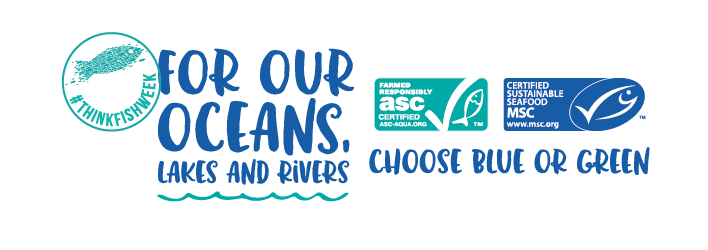Think Fish Week, from 25 September to 1 October 2017, is all about making consumers aware of their power to make a difference. Consciously choosing to buy sustainable, wild-caught fish and shellfish and responsibly-farmed fish helps to protect fish stocks in vulnerable coastal areas and in the open seas.
This annual week of awareness is a shared initiative of WWF Belgium, the Marine Stewardship Council (MSC) and the Aquaculture Stewardship Council (ASC). The two latter organisations are best known for their quality labels, which recognise sustainable, wild-caught fish and responsibly-farmed fish, respectively.
ON THE RIGHT TRACK
Things have been improving over the last few years with respect to fish stocks in the North Sea. Thanks to the European fishing quota, almost all commercial species are now recovering. And by transitioning to new, sustainable and most importantly more selective fishing techniques, we’re definitely plotting the right course for the future. It is widely known that fish stocks in seas such as the North Sea have been under great strain for some time. WWF Belgium, MSC and ASC advocate techniques designed to disturb the sea floor as little as possible, while also limiting the bycatch as much as possible. With their quality labels, organisations such as the MSC and the ASC seek to make progress that goes further than current laws and legislation. As part of this, experts are studying the impact of the fishing harvest on the ecosystem.
CERTIFIED FISH
Thanks to the MSC quality label and logo, consumers are able to easily recognise wild-caught fish and shellfish that have been caught in a sustainable manner. Label holders must undergo a rigorous certification process overseen by various independent organisations. The ASC quality label guarantees consumers that all of the farmed fish and shellfish with this label has been produced responsibly.
Quotas are an important aspect of sustainable fishing, but that’s only part of the story, which is why we feel it’s important that consumers can decide for themselves which fish to buy. Certified fish and shellfish makes it easier for the consumer to make the right choice.
For years Pittman Seafoods has been committed to offering a wide variety of certified fish. Currently, Pittman Seafoods is certified by both the MSC and ASC. We offer MSC-certified wild salmon, Alaska pollack, dab, hake, cod, lobster and scallops, as well as ASC-certified farmed salmon, mussels and panga. But it’s important to us that our non-certified products are sustainable, too.
And so it goes without saying that Pittman Seafoods is wholeheartedly behind Think Fish Week!











Comments